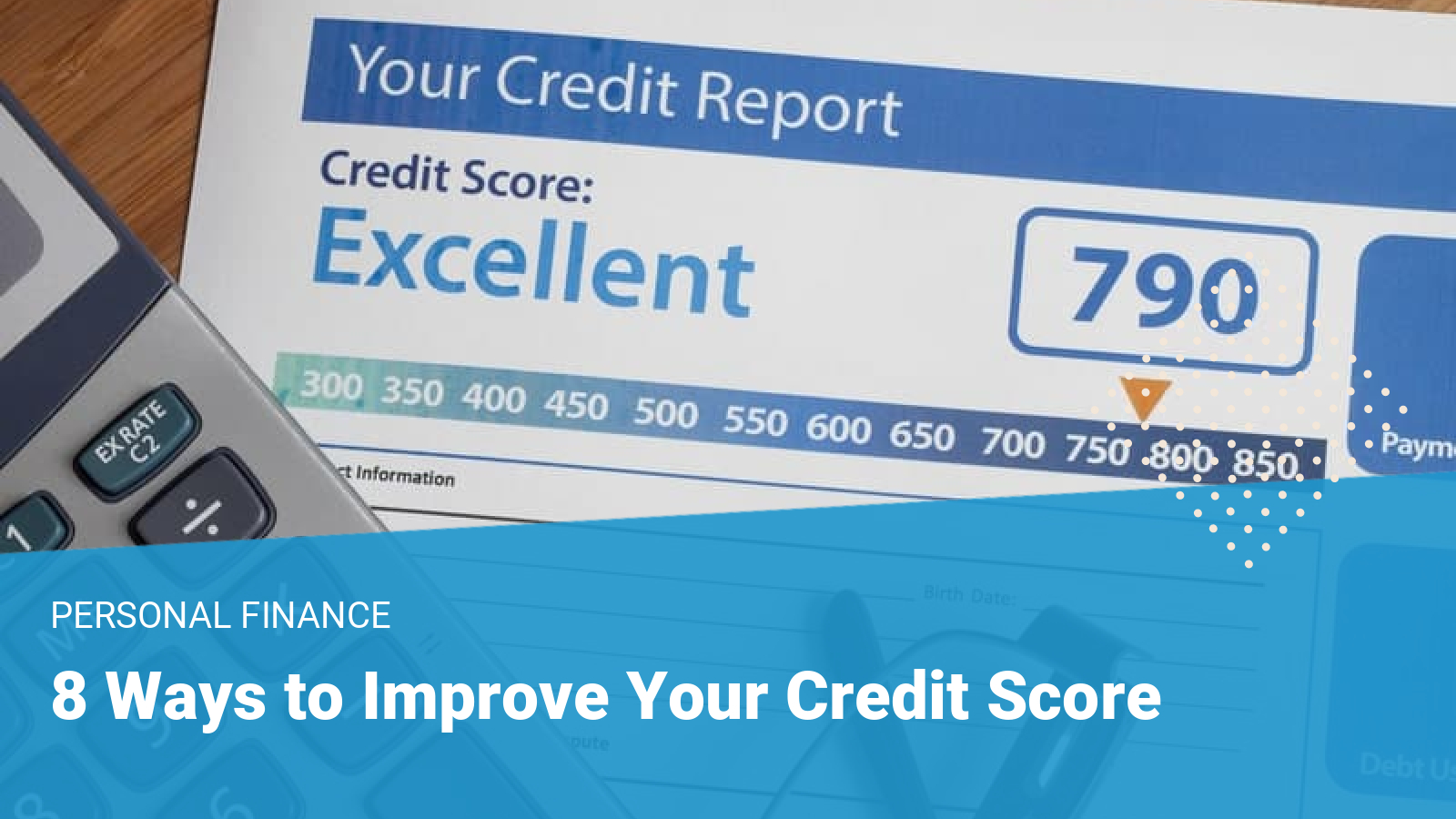8 Ways to Improve Your Credit Score
When was the last time you checked your credit score? It’s important for consumers to understand how their credit score is calculated and how long it takes to improve a credit score.
If you want to know how to build credit, read on. Financer.com has compiled a detailed breakdown with eight ways to improve your credit score.
How To Improve Your Credit Score
Many articles will offer tips to improve a person’s credit score. While the formula is pretty simple in theory, it is more difficult in reality.
It takes some self-discipline and new habits. However, it is worth it in the long run.
When applying for financing for investments or property, having good credit is imperative. Which of the following actions will improve your credit score?
Below are eight steps that will help your number rise in no time at all.
How to Build Credit: 8 Easy Steps
Steps
Pay your bills on time
Paying your bills on time is a massive factor in improving your credit score. Even paying one day late can cause significant damage if done on more than one occasion.
Setup automatic payments
Set up an automatic payment as soon as the bill becomes available. That way there is no chance of missing a payment later in the month when you may have forgotten about it.
If there is concern about having enough funds in the account each month, there are many actionable ways to gain financial peace of mind.
Open a separate account for bills that is not connected to your debit card. Every paycheck transfer enough money to cover regular bills such as utilities, car loans, and mortgages.
For bills that you cannot auto pay set reminders on your phone to pay one day as soon as the invoice becomes available. This will improve your credit score over time.
Review your report
Review your credit report and look for errors that may have occurred. Contact the credit report agency and dispute any mistakes. There are companies that can help repair bad credit fast as well.
Don’t apply for new credit
Every time an application is put through for new credit, the lender conducts a hard inquiry. Even if the new account is not accepted, it will appear on your credit report for up to two years. Eac hard inquiry will potentially lower your credit score.
Contact creditors
Contact your creditors if there is a chance that you are going to fall behind on payments. Ask to set up a payment schedule that you can stick to.
This will save your credit score in the long run if you make the new agreed payments on time.
Reduce your credit utilization ratio
If you have multiple credit cards, pay down your most maxed-out cards first. This will reduce your utilization ratio and improve your credit score.
Pay off your newest debts first
If you have acquired multiple small debts of small amounts, make a list of the debts from newest to oldest. Pay off the latest debts first.
This will keep your long term credit history thriving and, in turn, improve your credit score.
Consolidate your debt
Merging multiple debts into one larger payment is not always the answer for short-term credit score improvements. However, in the long run, it can be beneficial.
If you can cover all your debt payments monthly, a consolidation loan may be the answer to reducing your debt load quickly.
This will improve credit utilization, along with saving money on high-interest rate debt like credit cards.
Does paying off collections improve your credit score? Yes, paying off collections will help your credit score over time.
If you have outstanding debts, a consolidation loan may also help improve your credit score by limiting the chance that your small debts go to collections.
Having only one repayment to focus on can help reduce your debt quickly. It can also save you money if you find a consolidation loan with a lower interest rate than what you currently pay now.
How To Check Your FICO Credit Score for Free
90% of American businesses use FICO credit scores to evaluate the creditworthiness of a person. There are many ways to check your FICO credit score without damaging your credit.
Regularly checking your score is an excellent way to encourage decision-making that will improve your score over time.
Below are a few credit card companies that make it easy to track your FICO credit score.
Discover credit cards provide a free credit score for customers. They update their online scores every 30 days, and checking will not cost a thing.
If you are an American Express credit card holder checking your FICO credit score is easy. You will find your score posted on your online account. It is updated regularly and completelyfree as part of the American Express service.
All three of these banks offer free FICO credit score information through your online banking service. Each one is updated regularly, and checking will not affect your credit score.
Maintaining a good credit score is essential to future funding. It is hard to rebuild credit, and delinquencies will stay on a credit report for up to seven years.
At Financer.com we value your feedback. Leave a comment below on ways you have improved your credit score.
FAQs
How long does it take to improve a credit score?
Increases in credit scores take time. To see any significant difference, it may take three to six months of positive credit behavior.
Does your credit score change every 7 days?
No. Because every lender has its own reporting schedule and policies, your credit scores can change often—even multiple times a day. It’s normal for your scores to fluctuate a little. And keep in mind that you have many different credit types.
How long does it take to raise your credit score from 500 to 700?
The good news is that when your score is low, each positive change you make is likely to have a significant impact. For instance, going from a poor credit score of around 500 to a fair credit score (in the 580-669 range) takes around 12 to 18 months of responsible credit use.



